| Minsheng, or people's wellbeing, has become the catchword during sessions of the 11th National People's Congress (NPC), China's top legislature, and the 11th National Committee of the Chinese People's Political Consultative Conference (CPPCC), the country's top advisory body, which wound up respectively on March 14 and March 13. No matter whether minsheng arose in group discussions, or in motions and proposals, deputies and members expressed concerns, putting forward ideas for solutions to problems involving people's wellbeing--such as skyrocketing house prices, educational reform, employment and low-carbon economy--to make sure the people's voices were heard.
Selected summaries of their opinions follow:
Stabilizing the Housing Market
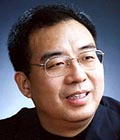
Guo Guoqing: deputy to the 11th NPC and Director of the China Marketing Research Center at Renmin University of China
The country is now faced with the urgent task of curbing surges in house prices in major cities that is choking consumption and widening the rich-poor gap. To achieve this, it will be necessary to clamp down on speculators hoarding empty houses and property developers sitting on unused land.
Local governments, in particular, should attempt to calm soaring land prices and reduce their reliance on land sales as a source of revenues. The Central Government is supposed to step up supplies of affordable houses to improve the livelihood of low-income groups. In addition, it is also necessary to streamline the rental market and repair many dilapidated houses in rural areas. A stable and consistent policy for the sector would also help avoid cyclical volatility and ensure the health of the market.
Meanwhile, regulators must keep a close eye on mortgage lending and put in place powerful measures to fend off property-related financial risks. The real estate industry has become a pillar force of the national economy, so its healthy development deserves the utmost attention from policymakers.
Employment is Key
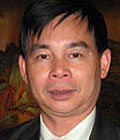
Li Xinghao: deputy to the 11th NPC and General Manager of Guangdong Chigo Air-Conditioning Co. Ltd.
In the work report delivered by Premier Wen Jiabao, the government vowed to create at least 9 million urban jobs this year, a daunting challenge at a time of global downturn.
I believe a viable option is to alleviate taxes and other financial burdens on enterprises so they can tide over tough times and avoid layoffs. Many hard-hit small and medium-sized enterprises (SMEs) are still struggling, and their recovery would help put a solid floor under the buckling job market.
The pains of many SMEs lie in a lack of access to credit due to the unwillingness of commercial banks to lend them money. So an effective countermeasure is to direct easier credit into small businesses and improve the credit guarantee system.
Very few Chinese university graduates have the initial capital to start up their own businesses. But this is starting to change since the government has offered a series of powerful policy incentives, such as small loans, tax breaks and relevant training.
The Fight Against Corruption
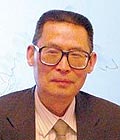
Liang Huixing, deputy to the 11th NPC and a member of the NPC Law Committee
The country has attached great importance to the fight against corruption. In his work report to the NPC, Premier Wen said government officials must report their property and "willingly" accept the oversight of disciplinary bodies.
Despite significant progress in the country's anti-corruption drive, vigorous efforts are still needed to press ahead with precautionary measures and strict enforcement of punishments. For example, it is necessary for the government to increase transparency in promoting cadres and take public opinion into consideration, as well as regulate the bidding process for public projects and government purchases.
It is also imperative to establish an effective system for officials to report their personal property including incomes, housing, investments, and spouses' and children's jobs.
Justice departments, in particular, must deepen their reforms to improve efficiency and consolidate supervision over officials in the fight against corruption.
Supporting the Green Economy
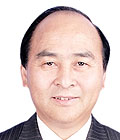
Liu Shaozhong, deputy to the 11th NPC and Director of the Yunnan Provincial Commission of Industry and Information Technology
Energy shortages and environmental degradation are placing an onus on the Chinese economy to go low-carbon. This means enterprises must improve their energy efficiency and curb emissions, and individuals must reduce their carbon footprints. Even simple behavioral changes, such as turning off unused lights or walking to work instead of driving, could be helpful to greening the planet.
Curbing highly polluting and energy-guzzling industries could compromise GDP growth for a short time, but given its far-reaching implications for the economy, it is well worth the effort.
Last year, we promoted the use of more than 8 million energy-saving lights across the province, which in turn helped conserve 230 million yuan ($34 million) worth of electricity and avoid emissions of more than 435,000 tons of carbon dioxide.
To accelerate development in the green economy, the country will have to push for greater use of renewable energies, like wind and hydro-power, and press ahead with environmentally friendly sectors, like tourism and hi-tech businesses.
Urbanization Swings Into Gear
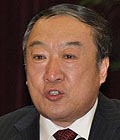
Su Rong, deputy to the 11th NPC and Secretary of Jiangxi Provincial Committee of the Communist Party of China
As China picks up the pace of urbanization, an inevitable question arises: how can it properly help farmers integrate into urban lives? Many young migrant workers born in the 1980s and 1990s are unfamiliar with farming and wish to move to cities.
Obviously, smaller towns on the outskirts of urban areas, as opposed to the crowded cities themselves, will absorb most of the rural residents. But this requires removal of many social system barriers, including the established household registration system, to grant farmers equal rights with urban residents, as well as education, healthcare and pension benefits. A better social safety net would also add an extra incentive for farmers to increase spending and buoy the consumer market.
| 